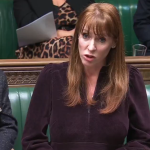Negative experiences of Britain’s immigration system and other key institutions are taking their toll on Black African parents’ trust of and engagement with child welfare services.
In the face of historical issues, it’s not surprising that many parents are afraid that authorities (including the police and courts) are unfair, and therefore likely to harm their children’s opportunities.
In research conducted with 25 individual Nigerian parents in Greater London (Nigerians make up nearly one-third of all foreign-born Black Africans in England and Wales), participants revealed perceived and real oppressive treatment from health, social care, education and criminal justice professionals, which they linked to differences in race and culture.

fizkes/Shutterstock
In the opinion of these parents, the authorities were not there to help. Instead, they saw professionals as being uninterested in the well-being of Black African children and their families.
In one case, teachers reportedly referred parents to social workers for smacking their son. After initially reporting the pre-teen to his parents for being unruly in class, the teacher asked the boy how his parents had disciplined him and the boy disclosed that his mother had smacked him. Following the school’s referral, social services initiated a section 47 child protection investigation.
The mother, however, believed the teachers were deliberately misrepresenting her “African values” and blatantly relishing the pain and suffering her family was undergoing throughout the investigation. She was also distressed about teachers failing to make any other effort to support her son in class. The mother maintained that frequently subjecting her son to temporary exclusions during what was clearly a difficult period of child protection investigation had been unhelpful.
Participants in the aforementioned research shared that they were often misunderstood and misrepresented in encounters with professionals.
One participant explained that he and his partner had been deemed by a white health practitioner to be neglectful parents for having an overweight baby. Following this, a Black professional assessed the baby and advised that, as the parents were tall and of African heritage, their baby was likely to be heavier than an average European child. The couple was cleared of neglect.
Research highlights how body mass index (BM1) (designed for white bodies) is improperly used, causing significant psychological stress and legal problems for Black parents with children incorrectly judged to be overweight. In the previous example, BMI measurement contributed to the parents’ sense of racial oppression.
Parents interviewed in the study also concluded that encounters with authorities almost always led to children being removed into care – or threats of it.
While these are not uncommon experiences among white British parents, participants were convinced that their immigrant status and race led professionals to treat them with suspicion, disrespect and heavy-handedness. They were also left with the feeling that their views did not matter. Ultimately, the parents felt disempowered.
One participant worried that “Black African children” do not quite understand British systems enough to shield themselves from the authorities. This father observed that, in his view, white British children know how to handle the authorities “because it is their country”.
Though his statement is problematic in terms of questioning the knowledge, belonging and Britishness of these children (all participants’ children are British and being raised in Britain), his views point to a sense of authenticity and entitlement that may not be easily accessible to Black African-British children.
Parents consider ‘flight or fight’ options
As Nancy Fraser, professor of political and social science at The New School for Social Research, discusses in her essays on ensuring social justice for marginalised groups, Nigerian parents in the research sought alternative methods within their networks to navigate child welfare systems in Britain.

LightField Studios/Shutterstock
The parents managed their fears of “parenting-while-Black” in Britain through four key strategies: passive, introvertive, active and transpositional.
Passive parents (who want to be accepted at all costs) used strategies that did not question British child welfare norms, practices, policies or professionals’ behaviour. They wanted very much to assimilate into British culture, even if that meant rejecting their heritage. These parents reject African norms and practices, including discouraging their children from speaking African languages.
Introvertive parents (who take an inward-looking approach) strongly equated engagement with professionals with removal of children into care of local authorities, and so did their best to limit such engagement. The couple who was incorrectly deemed to have neglected their child subsequently decided to avoid all contact with authorities in the future wherever they could.
Active parents (who want to integrate and play a role) were open to engaging with British child welfare systems but were prepared to contest any norms and professionals’ practices they disagreed with. The mother previously mentioned, whose child was frequently temporarily excluded from school, challenged the school and social workers about what she considered poor practices.
Transpositional parents (who believe that location is a key factor in children’s upbringing) thought that if managing their children’s care and behaviour became too difficult in Britain, children should be temporarily sent back to Nigeria to gain perspective.
Those who had sent their children to Nigeria to be cared for by relatives reported very positive outcomes, although this research did not explore the views of those children. There are also many questions about the temporary stay and welfare of such children while in Nigeria.
Nonetheless, the major issue is that these parents were so afraid of British child welfare systems that they were willing to take drastic steps to move their children to a place they had previously decided to leave.
Although being a parent is to accept fear as an occasional factor at the back of one’s mind, Black African parents in Britain tend to have different experiences: their fear is deeply centralised, constant, and vivid. Therefore, they find ways to adapt their child-rearing to ensure they do not fail as parents as well as immigrants.
Social workers and associated professionals should be aware of these fears and take steps to allay them so that Black African parents can have more open and trusting interactions with the child welfare systems in Britain.
![]()
Cynthia Okpokiri received funding from Economic and Social Research Council (ESRC), UK.











